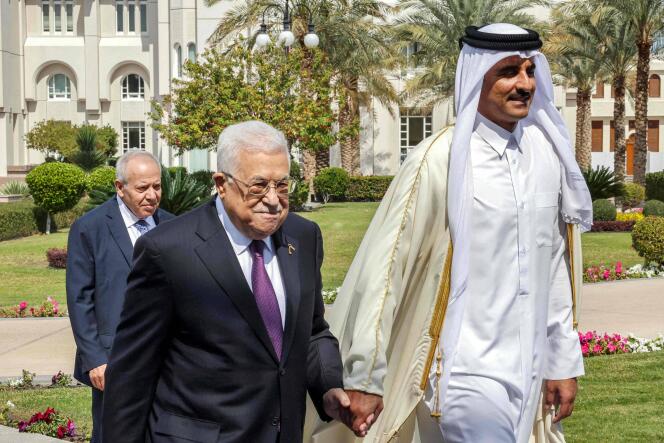


What power should govern Gaza and the Palestinian territories after the war? While Washington and its Arab allies are linking the negotiation of a ceasefire between Israel and Hamas to an overall project for resolving the conflict – which could begin with recognition of the Palestinian state by the United Nations – the Palestinian factions are hesitating. Fatah, which is in power in the West Bank, and Hamas, which is bending but not breaking in Gaza, are stepping up their contacts with a view to reconciliation, which has been constantly postponed since their break-up in 2007.
This dialogue was initiated by dissidents and critics of president Mahmud Abbas from his Fatah party, who sent their emissaries to Qatar, where leaders of the Islamist movement are living in exile. Fatah leaders then followed suit. As potential successors to the 88-year-old president, they believe that the two parties need each other to survive.
This unrest forced Abbas to make the trip to Doha himself on February 11. There is no indication that this unpopular president, supported at arm's length by his Western allies, met with his Hamas rivals, who hope to see him ousted soon. But Abbas did ask emir Sheikh Tamim bin Hamad Al Thani about the negotiations that Doha is facilitating between Israel and the Islamist movement. On February 14, in a strongly worded communiqué, the "president" urged Hamas "to rapidly conclude a prisoner exchange" with Israel, to open up a diplomatic sequence in which he sees himself as a key player.
Abbas fears that the Islamists would gain immense prestige from such an exchange, given their ambition to free all Palestinian detainees from Israeli prisons, regardless of their political party. The Arab world's oldest leader also knows he is in trouble, as his Arab and Western allies demand that the Palestinian Authority "revitalize" and "reform" itself in the post-war era.
Despite these fears, Jibril Rajoub, a close associate of Abbas, proposed a reconciliation plan to the leader of the Islamist movement, Ismail Haniyeh, in Doha in early February. The secretary general of Fatah's Central Committee, who has long been working towards reconciliation, believes that "Hamas will not disappear. It is part of the Palestinian people." He therefore urges its leaders "to take the first step," he said, by recognizing the United Nations resolutions as the reference for resolving the conflict, by accepting a Palestinian state within the internationally recognized 1967 borders, and by accepting the international commitments of the Palestine Liberation Organization (PLO), a failing body which remains the only recognized representative of the Palestinian people abroad, and which Hamas has been seeking to integrate for years.
You have 65.53% of this article left to read. The rest is for subscribers only.
